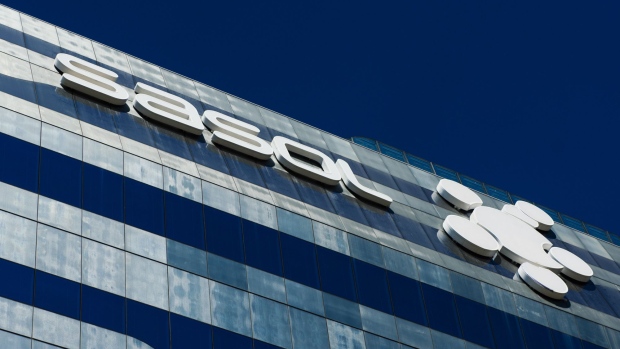Aug 17, 2020
Sasol Reports Annual Loss as Last Lake Charles Unit Delayed
, Bloomberg News

(Bloomberg) --
Sasol Ltd. reported a loss for the financial year after $6.5 billion in asset writedowns, and said the startup of the last unit at its Lake Charles chemicals project has been delayed again.
The South African fuel and chemical maker lost 91 billion rand ($5.3 billion) for the year ended June 30, according to a statement on Monday. Lower demand and prices for its products due to the coronavirus pandemic compounded problems at the U.S. project, making a bad year even worse.
“The combined effects of unprecedented low oil prices, destruction of demand for products” and writedowns resulted in the loss, the company said. “Within a volatile and uncertain macroeconomic environment, our foundation businesses still delivered resilient results.”
Sasol plans to focus specifically on chemicals and energy, its core businesses, after a string of disappointments around the construction of Lake Charles. Those failings resulted in the resignation of its co-CEOs and cost overruns that drew attention to its net debt.
The company said it has made progress with lenders to relax covenants, resulting in “no significant debt maturities before June 2021,” when a $1 billion syndicated loan comes due. Sasol is restricted from declaring a dividend for as long as its net debt is more than three times greater than its earnings before interest, taxes, depreciation and amortization. The ratio is currently 4.3.
Sasol reiterated its plan to pursue a $2 billion rights issue, saying it would take place in the second half of the financial year 2021.
The Lake Charles project, approved in 2014 at an estimated cost of $8.1 billion, exceeded its “worst-case scenario” for price over the last few years as problems continued to deepen. The last remaining unit to come online will be the low density polyethylene facility, which was damaged during a fire in January. That is now expected to reach full operation in October, extending earlier delays.
The problems at Lake Charles contributed to a plunge in Sasol’s market cap of $13 billion in the first three months of 2020, before lockdown measures to control the pandemic were even introduced in South Africa.
©2020 Bloomberg L.P.


